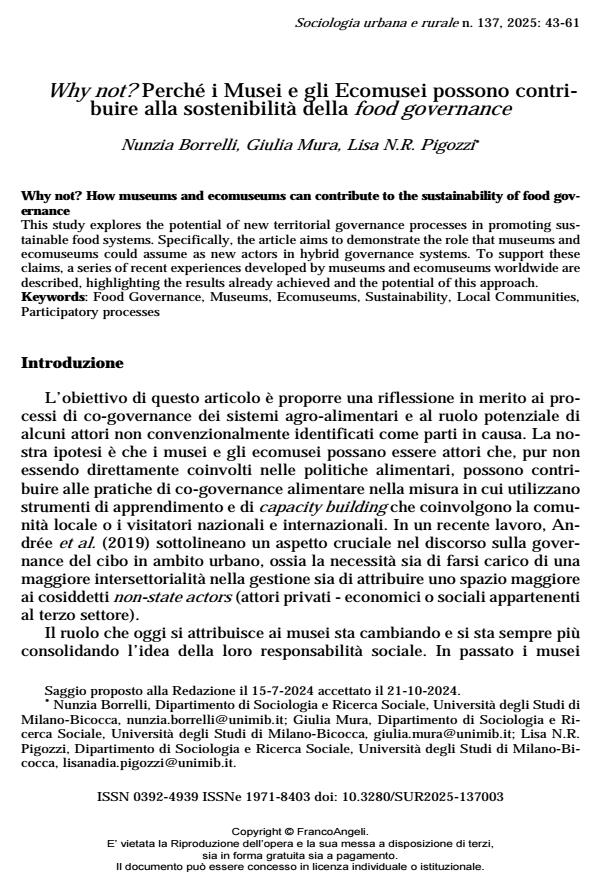Why not? Perché i Musei e gli Ecomusei possono contribuire alla sostenibilità della food governance
Titolo Rivista SOCIOLOGIA URBANA E RURALE
Autori/Curatori Nunzia Borrelli, Giulia Mura, Lisa N.R. Pigozzi
Anno di pubblicazione 2025 Fascicolo 2025/137
Lingua Italiano Numero pagine 19 P. 43-61 Dimensione file 176 KB
DOI 10.3280/SUR2025-137003
Il DOI è il codice a barre della proprietà intellettuale: per saperne di più
clicca qui
Qui sotto puoi vedere in anteprima la prima pagina di questo articolo.
Se questo articolo ti interessa, lo puoi acquistare (e scaricare in formato pdf) seguendo le facili indicazioni per acquistare il download credit. Acquista Download Credits per scaricare questo Articolo in formato PDF

FrancoAngeli è membro della Publishers International Linking Association, Inc (PILA), associazione indipendente e non profit per facilitare (attraverso i servizi tecnologici implementati da CrossRef.org) l’accesso degli studiosi ai contenuti digitali nelle pubblicazioni professionali e scientifiche.
This study explores the potential of new territorial governance processes in promoting sustainable food systems. Specifically, the article aims to demonstrate the role that museums and ecomuseums could assume as new actors in hybrid governance systems. To support these claims, a series of recent experiences developed by museums and ecomuseums worldwide are described, highlighting the results already achieved and the potential of this approach.
Parole chiave:Food Governance, Museums, Ecomuseums, Sustainability, Local Communities, Participatory processes
Nunzia Borrelli, Giulia Mura, Lisa N.R. Pigozzi, Why not? Perché i Musei e gli Ecomusei possono contribuire alla sostenibilità della food governance in "SOCIOLOGIA URBANA E RURALE" 137/2025, pp 43-61, DOI: 10.3280/SUR2025-137003